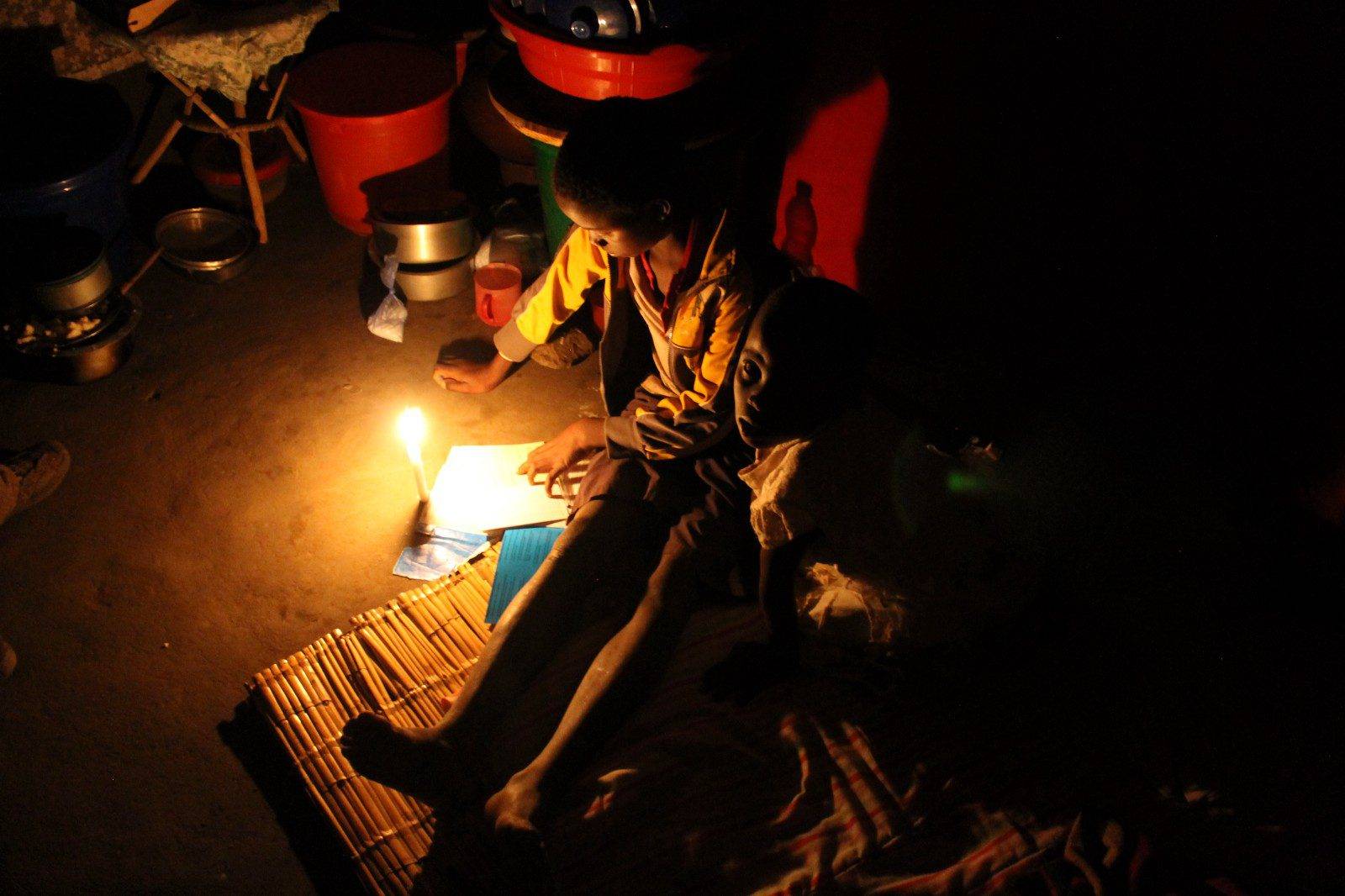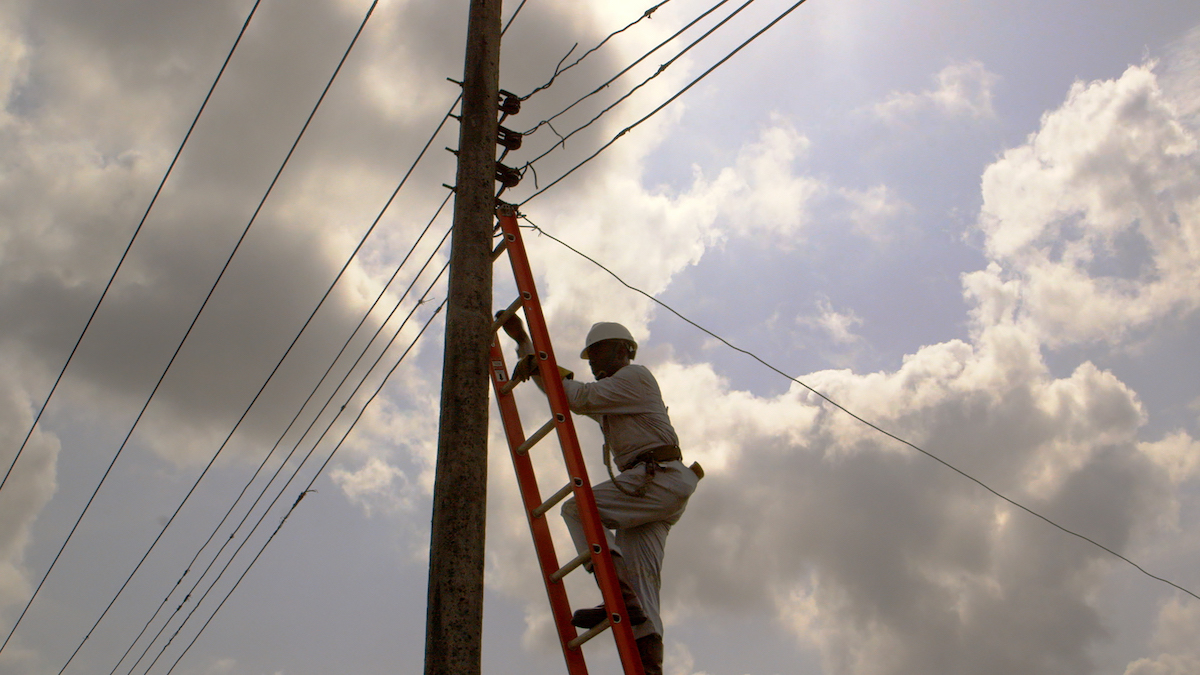Here’s Why Nigeria Still Can’t Power Homes For Half A Day & Spends 2X The Infrastructure Cost On Generator Fuel

Nigeria And “The Power Struggle”
Nigeria will celebrate 59 years as an independent nation on the first day of next month, but quite frankly, there may not be too much to celebrate.
And that’s because the country is still pretty much plagued by the same problems that existed more than a century ago — when the Brits amalgamated the southern and northern protectorates and basically formed the country called Nigeria.
Perhaps the most damning of all the problems that continue to linger in Nigeria is the issue with electricity. It’s yet another “Independence Day” and Nigeria still remains tightly bound by the shackles of epileptic power supply.

A few days back, the Office of Nigeria’s Vice-President, Prof. Yemi Osinbajo, stated that the federal government has spent NGN 1.5 Tn on the power sector in the last two years.
Go a few months back to July and the Vice-President can be quoted saying the present administration has invested NGN 900 Bn in the sector since it assumed office in 2015. And it was only last month that the federal government approved another NGN 600 Bn intervention fund for the sector.
When these facts are placed side-by-side with the notion that the Office of President Muhammadu Buhari will spend NGN 46 Mn to fuel its generators this year, then one of two things becomes clear: either Nigeria is doomed to never have constant power or all that money just disappeared into thin air.
Past And Present Administrations Have Failed To Fix Nigeria’s Power Issues
It’s not an indictment on only the present administration as virtually every past Nigerian government has promised and failed to rectify Nigeria power woes. It’s just a shame that many years later, the so-called “Giant of Africa” still can’t generate enough electricity to power the country for half a day.

It’s been one failed policy after another and nothing to show for it. For a country that has been running its own affairs for 59 years — and one that is so rich in human and natural resources — it’s almost criminal that power output is still around 7,000 megawatts.
And that’s for a country of up to 200 million people with a GDP of around USD 370 Bn, blessed with energy resources that are unmatched in this part of the world.
How Bad Is The Power Problem?
We are in the year 2019 and while referencing a research by NOI Polls, a recent Bloomberg report laid out some interesting bytes about Nigeria’s current power woes.
For starters, there are 1,358 expenses related to generators in Nigeria’s 2019 budget. Also, business owners and individuals in Nigeria spend about USD 12 Bn fueling generators every year; that’s two times Nigeria’s annual infrastructure budget.
Furthermore, the average daily power supply was only 9.2 hours for Nigerian households in the first half of 2019; that’s less than half a day.
And saving the most damning revelation of all for last, there is a rather unsettling bit about the generators in use in the country.

According to the report, there are some 22 million small gasoline generators in use in the country. And together, they generate an amount of electricity that is eight times higher than what is generated by the national power grid.
The economic losses caused by the poor electricity situation is enormous. Indeed, the International Monetary Fund (IMF) said this year, that Nigeria is losing around USD 29 Bn annually due to the problems with electricity in the country.
Similarly, in 2014, the World Bank found out from a survey that 27 percent of Nigerian firms identified the country’s electricity struggles as the main obstacle to doing business.
Is There A Way Forward?
Actually, there is a way forward. But it appears, the government might just be blocking it.
Fixing a country’s electricity issues has a positive knock-on effect on all other sectors and it is a key driver of economic growth. Indeed, prosperity in every facet of economic development is almost inevitably tied to stable electricity.
Nigeria will have to crack this power problem before it can get anywhere near the “Giant of Africa” that it claims to be. And solving the problem would require wholesale changes.
“We keep failing because the government insists on retaining control of key parts of the country’s power infrastructure,” says David Hundeyin, a writer, journalist, and talk show host who works with CNN, WNT Capitas, Business Day Media Group, CCN Markets, and Rise Networks.
He adds; “Despite the supposed privatisation a few years ago, only distribution is largely in private hands. Generation and crucially pricing still remains in government hands.”
Eleanya Eke, a seasoned investor and co-founder of Cashestate shares a similar view.
As he tells WeeTracker: “One reason we still lack adequate power supply is that we distrust market forces so we’ve not allowed them to take their full course with our power sector.”
“We saw this with telecoms, NITEL struggled to spread telephony. Then private telecoms came in and at first prices were sky high but over time it crashed to what it is now.”
“We are afraid that if we liberalize, power will be too expensive. That may be true at first but over time, if we allow private investments, then you’ll see solar, power plants, smaller grids and more all come in, and over time power will be available and cheaper.”
Hundeyin shares a similar view as he is convinced the government should cede control and make room for investments in the sector.
“An investor looking to make a profit cannot operate when the government is forcing them to supply to consumers who do not pay or to supply at prices that make no sense for them.”
He continues: “Perhaps most importantly, the government also has a huge backlog of debts it owes to the DISCOs, which it has no intention of clearing anytime soon.”
“The only debts it currently prioritises are foreign bonds, which basically keep Nigeria’s public finance ponzi scheme going. Domestic debt is almost completely ignored.”
At the moment, it does seem like the major obstacle hindering massive developments in Nigeria’s power sector is the government themselves; the same people supposedly trying to fix it.
“The government needs to dispense with the dream of being the holder of a single centralised national grid,” adds Hundeyin. “It needs to have the political will to fully privatise and deregulate all aspects of power generation.”
He goes on; “Currently, even if you have the money and willingness to develop your own large scale power infrastructure, you are not allowed to.”
“Most of Nigeria’s everyday power consumption is sourced from decentralised diesel and petrol generator units. This same principle needs to hold in the case of power generation, transmission, and distribution.”
“Nigeria should have thousands of microgrids of a few megawatts each, as against a single central grid of 40,000 megawatts which will take decades to develop.”
“The microgrid model also feeds into the development of alternative energy sources like solar and wind power farms.”
Hundeyin’s stance on the matter is supported by Eke who believes it’s time for the Nigerian government to actually work for the people and not for a few individuals.
“We need our political actors to sacrifice some of the people benefiting from the status quo and actually allow free markets to govern this space,” he says.
“We spend many times what national grid would cost, on powering our gens. And our gens collectively provide eight times the capacity of grids.”
“So the money is there to provide 24/7 electricity. They should allow free markets to do their work and stop letting bureaucrats and politicians drive our power policy.”